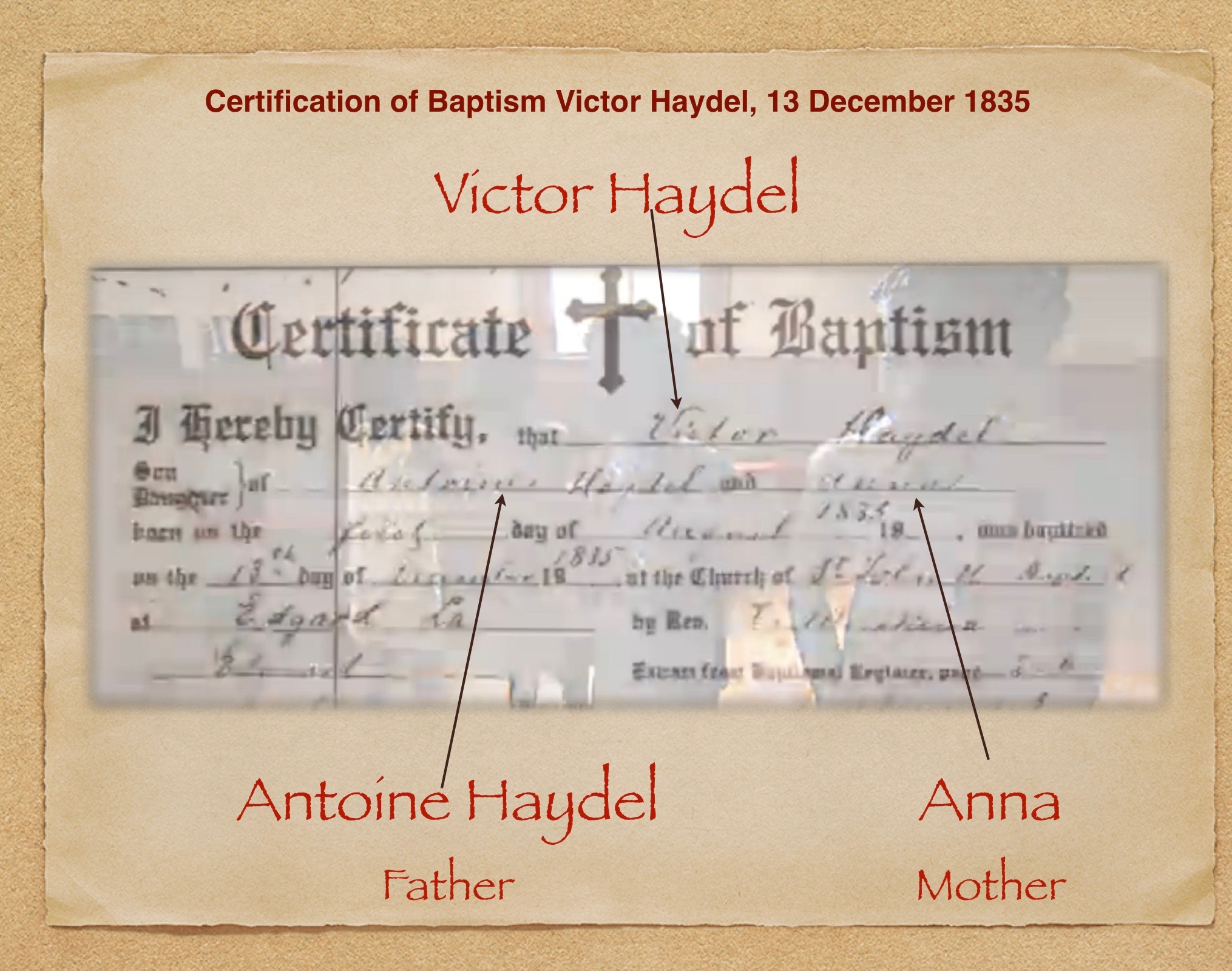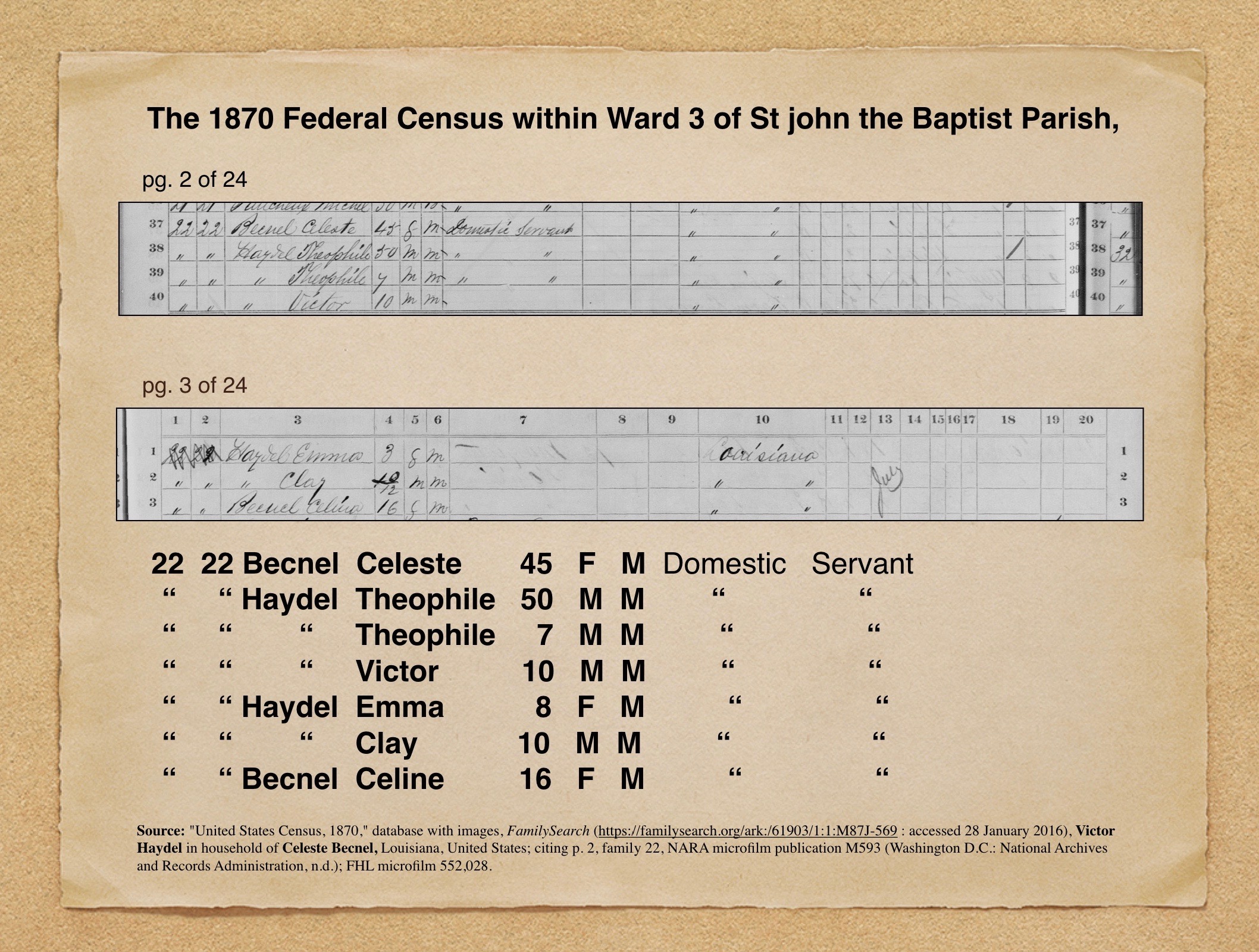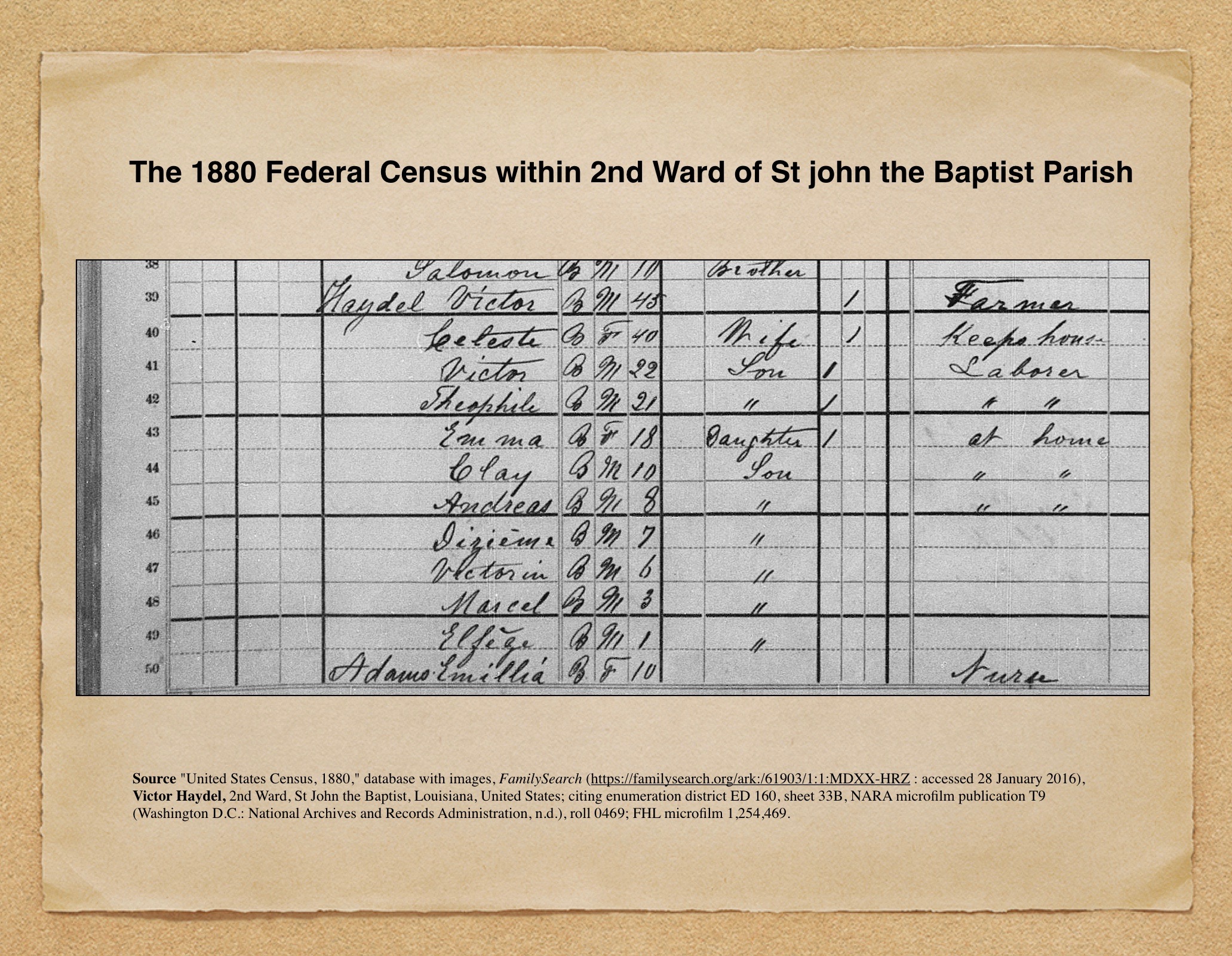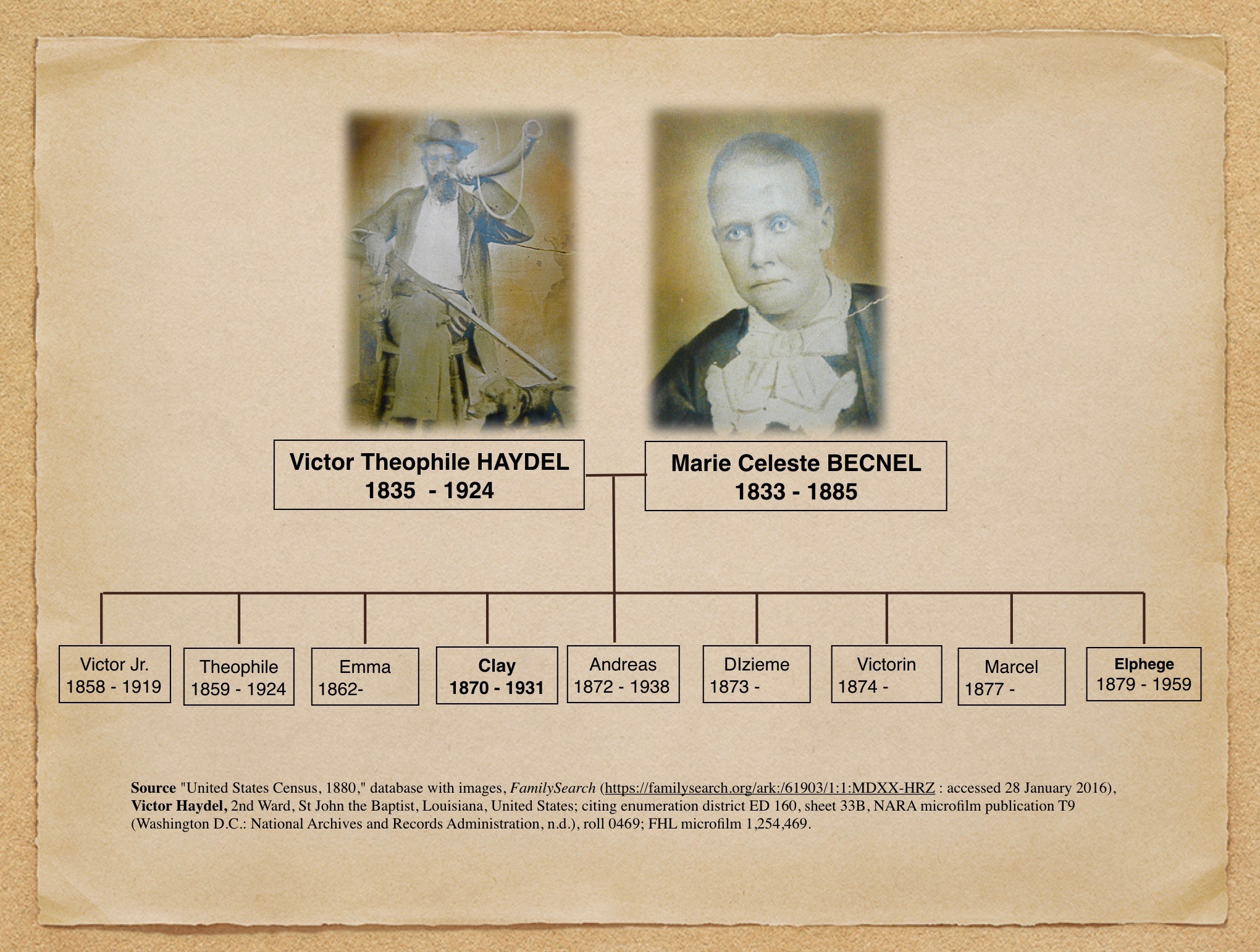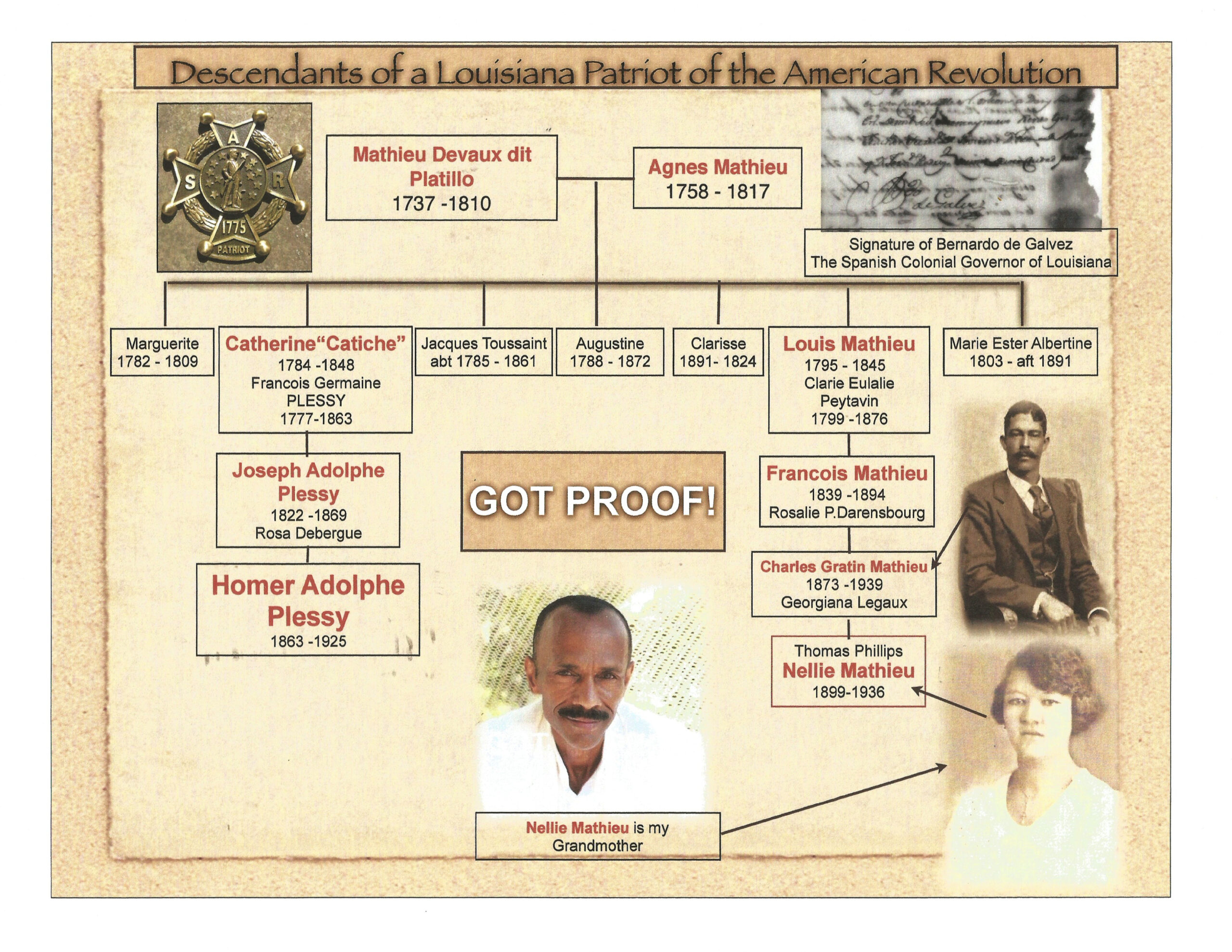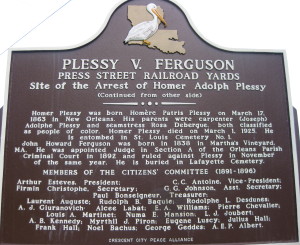In another blog posted back in 2015 titled, Getting to Know Anna and Victor at the Whitney Plantation, we were able to determine the lineal descent of Victor Haydel, using a single document, his St John the Baptist church baptism record. Listed was the name of his mother, Anna, (an enslaved woman owned by Marie Azelie Haydel), and his father, who was listed as Antoine Haydel, the brother of Marie Azelie Haydel, the last Haydel family member to own the Whitney plantation.
Once again, so what is the significance of these documents?
- The name of Antoine Haydel (a white member of the Haydel family) is listed as the father of the mixed-race child, Victor Haydel, on the baptism certificate. Records in other states rarely show documented evidence of white slave owners as parents of black slaves. However, in Louisiana, there are many instances where these relationships are documented.
- The baptism record can serve as the beginning paper trail in gathering evidence of a bloodline connection to the white Haydel family on the German coast of Louisiana.
- This mixed-race person born of a mother who was enslaved makes the child enslaved, according to the Code Noir in Louisiana. This law states that the child’s status will follow that of the mother at the time of birth. These laws were enacted in Louisiana as early as 1724 during the French colonial period in Louisiana. They were later modified, yet still defined the status (free or enslaved) of individuals born during the time of Victor’s birth. To learn more about it, see here the Code Noir
- The child identified as Victor, is given the surname Haydel, which is the same as the white family that owned him and his mother, Anna. Consequently, it is the same surname as the man identified on Victor’s baptism certificate as his father, Antoine Haydel.
- Since the father, Antoine Haydel, is the brother of the slave owner, Marie Azélie Haydel, Victor Haydel is not only Azélie’s slave but also her blood nephew.
See ancestral chart starting at the progenitor of the Haydel family- Ambroise Heidel:
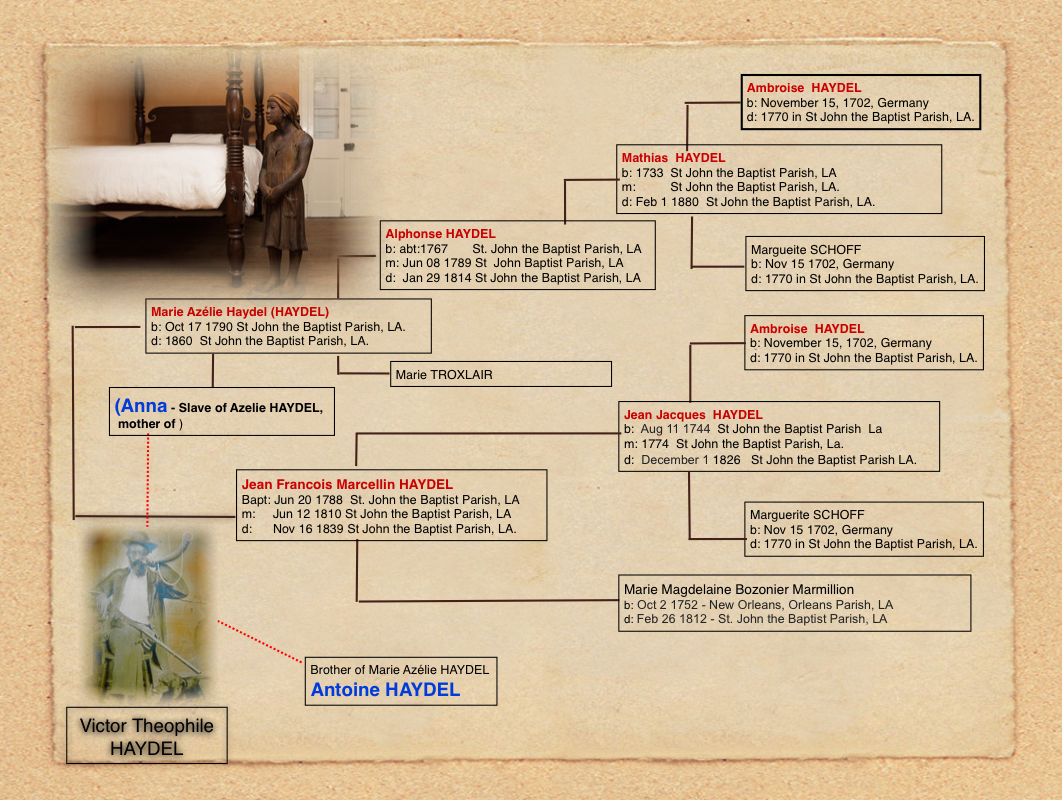 I also discovered that, as late as 1860, both Anna and Victor were listed on a property inventory of slaves being assessed after the death of Marie Azelie Haydel.
I also discovered that, as late as 1860, both Anna and Victor were listed on a property inventory of slaves being assessed after the death of Marie Azelie Haydel.
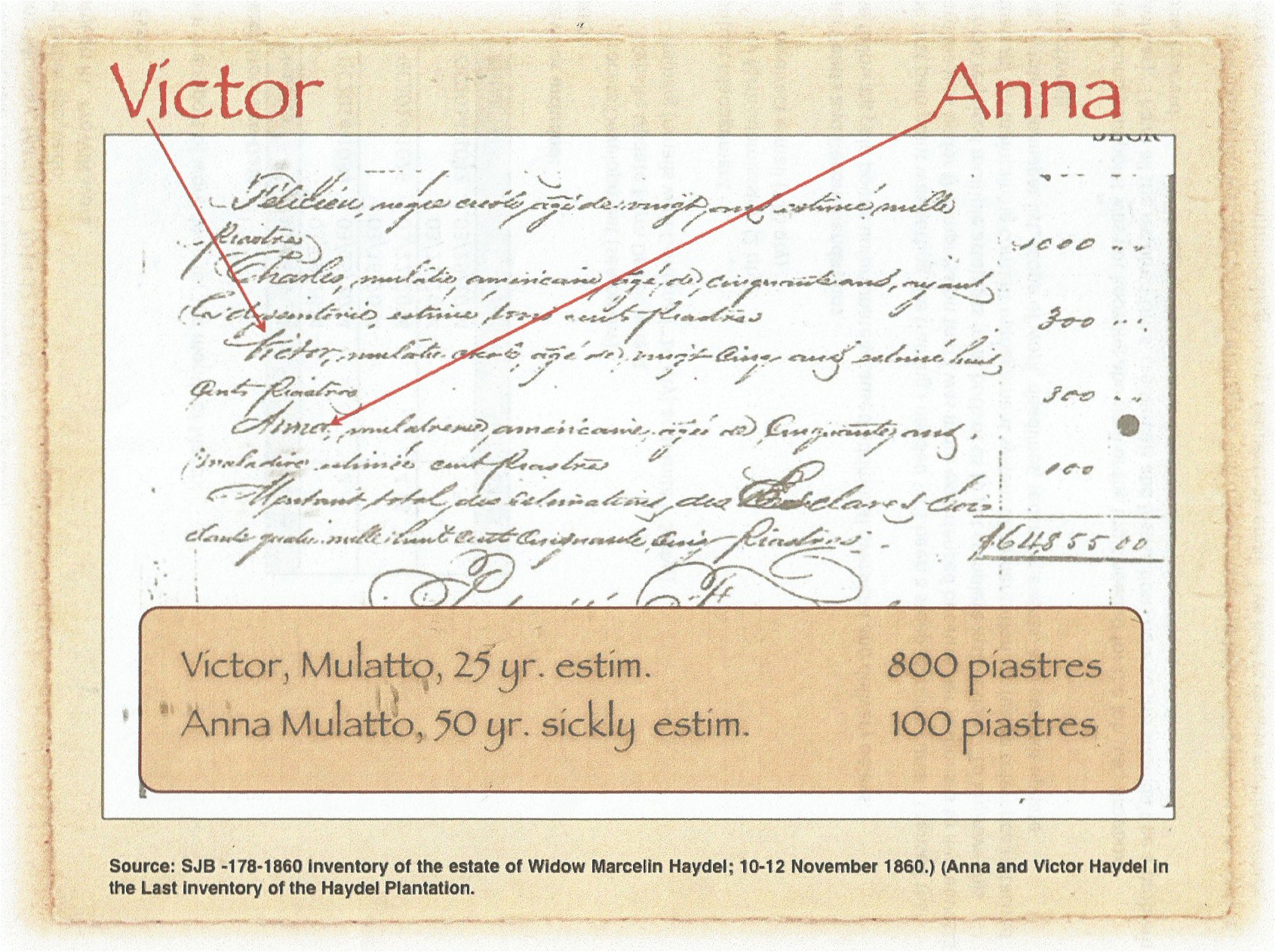 Given those two documents, the baptism record, and the slave inventory, evidence is established showing the white ancestral bloodline into the Haydel family via Antoine Haydel, then back to the Progenitor of the Haydel family- Ambroise Heidel.
Given those two documents, the baptism record, and the slave inventory, evidence is established showing the white ancestral bloodline into the Haydel family via Antoine Haydel, then back to the Progenitor of the Haydel family- Ambroise Heidel.
Victor Haydel, the Progenitor of the Haydels, Creoles of Color family.
Moving forward, the use of U.S. census records (1870, 1880) helps us to reconstruct the first generation of descendants, the children of Victor Haydel and Marie Celeste Becnel.
In the census of 1870 below, we see for the first time, Victor is referred to as Theophile Haydel, age 50 (m) male, (m) mulatto, and listed as a domestic servant. We also see, Celeste Becnel, age 45, (f) Female (m) Mulatto listed as a domestic servant. There are also 6 other individuals, assumed to be related; however, no indication of a relationship is stated on the document, other than being seen living in the same household.
See below:
Next, we see Victor listed as head of the household on the 1880 U.S. Census within the 2nd Ward of St John the Baptist Parish. Celeste is shown on the 1870 census, as Celeste Becnel; however, she is now listed as a Haydel and referred to as Victor’s wife. No marriage record has been found yet. There are also nine children, 1 female and 8 Males, ranging in age from 22 to 1 years old.
Using the information found on the 1880 U.S Census of St John the Baptist Parish, we are now able to construct a two-generation family tree showing the 9 children of Victor Theophile Haydel and Marie Celeste Becnel Haydel.
Based on the above information, we have now constructed a lineal ancestral descent from Ambroise Haydel to Victor Theophile Haydel, to his first generation of Haydel’s descendants of Color Creoles.
So now, why is this first generation important to all the descendants of Victor Theophile Haydel and Marie Celeste Becnel? This is your lineal connection to another interesting aspect of the Haydel family and Spanish Colonial Louisiana history.
First step, look for your Haydel ancestors listed in red here: finding proof of service.
